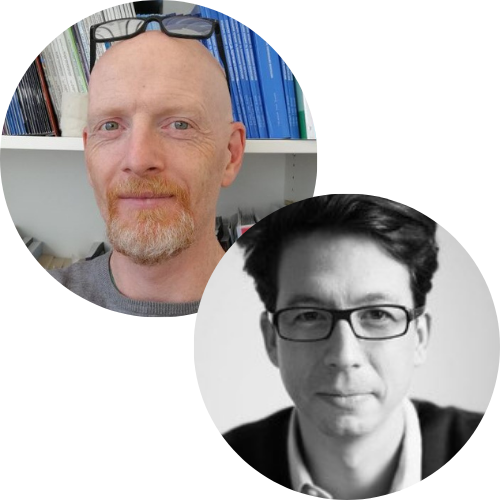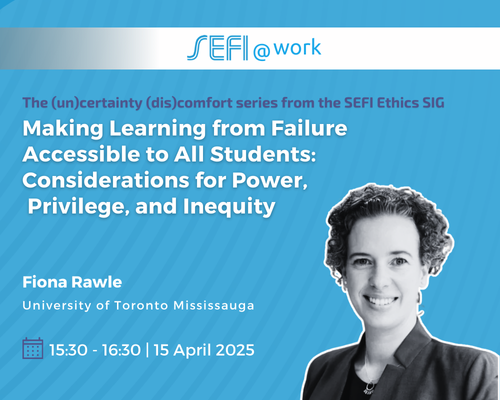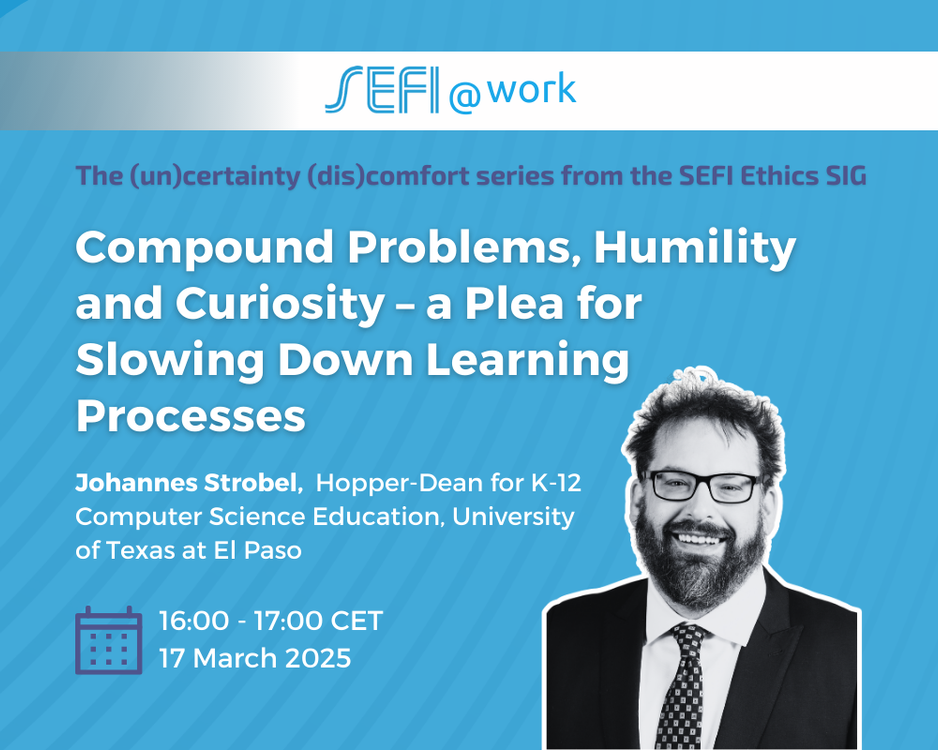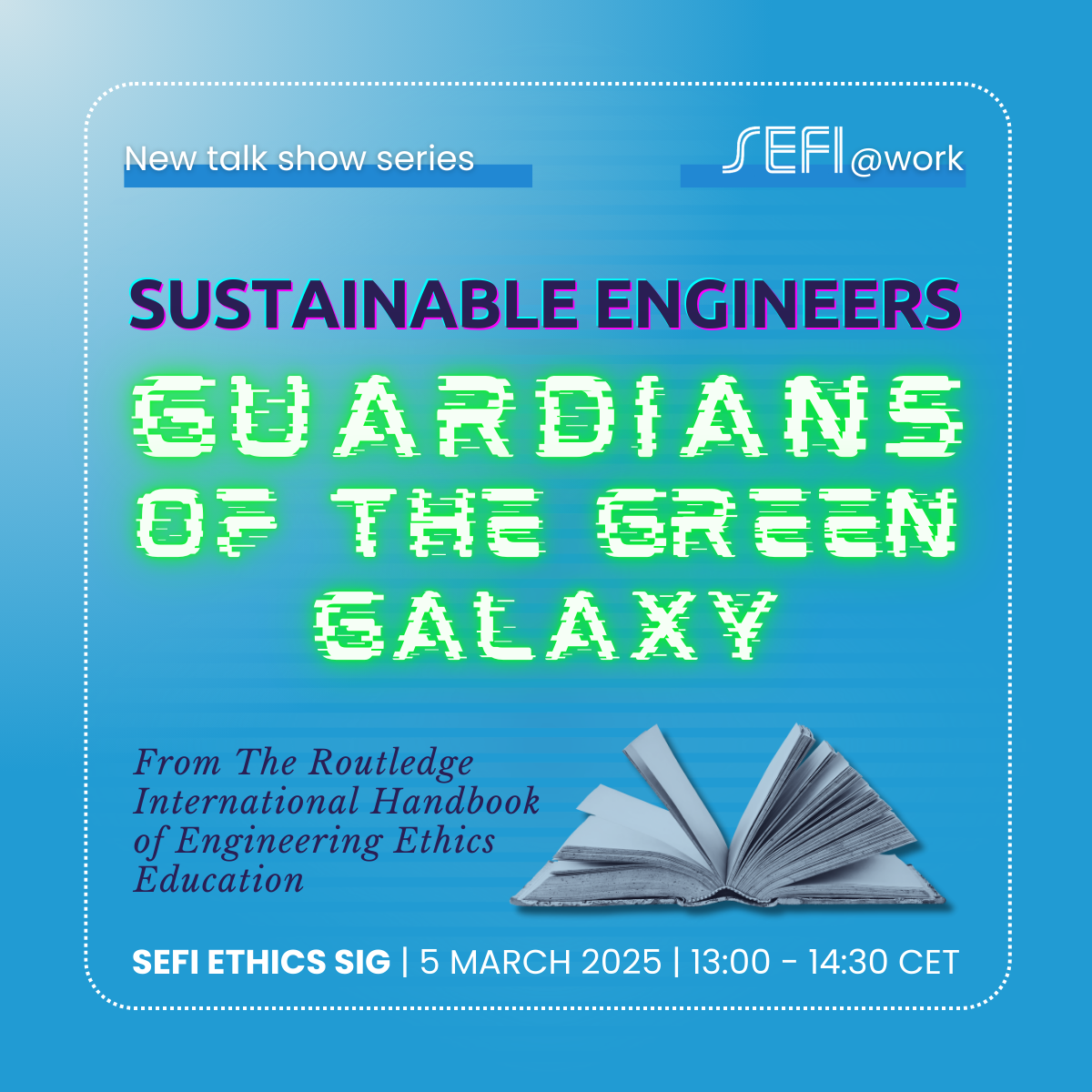15 April 2025, 15:30-16:30 CEST
This webinar will explore the impact that power, and privilege, and inequity play in one’s ability to embrace and learn from failure in the context of higher education.

Wikipedia is techno-ethical marvel, and a conundrum. For those teaching engineering ethics, it is an endless source of material for exploring how technology, morality, and social forces interact.
Wikipedia is a free and open encyclopaedia, providing anyone access to information that would previously have been only available to an elite few. It claims to be helping “create a world in which everyone can freely share in the sum of all knowledge” (Wikipedia: About). It is run by a non-profit foundation, and currently has over 6 million articles in English alone. In a sense it embodies the idea that technology can have ethical impact in making our world a better and more ‘fairer’ place.
Wikipedia also democratises the process of knowledge creation – the output of multiple contributors building a shared understanding. There is no single ‘authority figure’ who decides what goes into a Wikipedia page. Rather it is a community of editors who contribute, edit and correct articles. There is no entry requirement to be a Wikipedia editor – anyone can participate. If power and knowledge are intrinsically interwoven, Wikipedia provides a basis through which the community as a whole can challenge the established power order by enabling a broader community to co-create knowledge. And this is not an accident – it is designed into the wiki format. As a way of getting engineers to think about how ethics is designed into systems and products, Wikipedia again provides a rich source of material to explore.
Despite this potential, there are significant concerns about the way in which knowledge is constituted in Wikipedia. To take the English Wikipedia article on engineering ethics, for example, in the description of the history of engineering ethics, and in the case studies presented, references are predominantly to the Anglophone West. The page also describes the principles of engineering ethics from the point of view of professional associations: the perspectives of wider stakeholders are not represented. There is no discussion of engineering and colonialism or postcolonialism, no discussion of indigenous knowledge, no discussion of gender or ethnicity biases in engineering, and no discussion of power. As such, there are ethical questions about the representation of ethics, in the Wikipedia article. Raising these questions with engineering students provides a rich way into thinking about the potential biases – around gender, ethnicity and culture – that are often implicit in the work of engineers. It also provides an entry point into discussions of how technologies intended to have positive impact can have give rise to negative outcomes.
And this is important because Wikipedia is a very highly used source of information with 271 billion page views in the last year alone. Many people looking to get an introduction to a field, look first to Wikipedia. Therefore the content of Wikipedia matters.
The SEFI Ethics Spring School 2021 took the project of ‘collaboratively re-writing the Engineering Ethics Wikipedia page’ as a pedagogical project for the community. The goal was to bring a community together to ask what should a novice’s first introduction to Engineering Ethics look like? And how can a community collaboratively write a better introductory account of the field. This community is now embarking on a process of contributing to and improving this page. But this is also an activity that students can do – and one that may well have the added learning benefit of give them a sense that they can actually be empowered to take action on ethical issues.
If you would like to join in, feel free: there is a WIkipedia page telling you how to do so.


